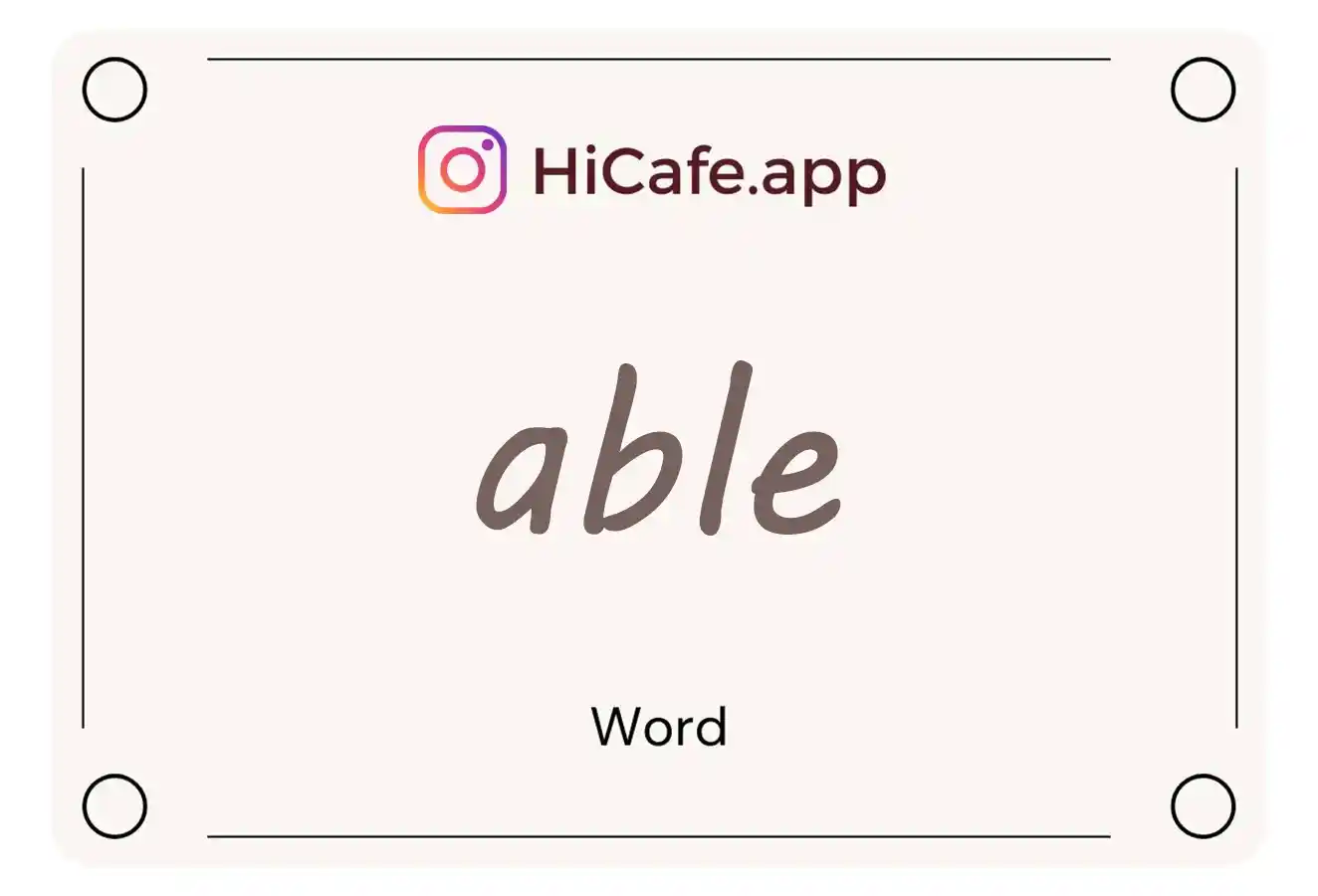Word of the Day: Able
The word “able” is almost always used with “be” and “to.” Together these words form a verb phrase. When a person can do something or has the ability or time to do something, use “be able to” to describe the situation. It’s very similar to “can.”
- She’s able to speak English. (She can speak English.)
- He isn’t able to finish his work. (He can’t finish his work.)
- We’re able to donate money to that organization.
- I’m not able to see you today.
- Why aren’t you able to help me?
Sometimes “be able to” appears with modal verbs or other verb phrases:
- Tom has to be able to use his computer.
- Sarah wants to be able to leave work early today. (She wants permission from her supervisor.)
- Are you going to be able to get your homework finished?
- If you want this job you must be able to speak English well.
“Be able to” is often used at the end of a sentence in the negative:
- He wanted to go to the party, but he wasn’t able to.
- I’d love to see you, but I’m not able to.
- The police officer told her to move her car, but she wasn’t able to. The battery was dead.
Essential English Dictionary
Visit the Popular English Words Beginning with A page to see the list of all words starting with letter A. For seeing the HiCafe dictionary, visit the Popular English Words with Meaning page.



